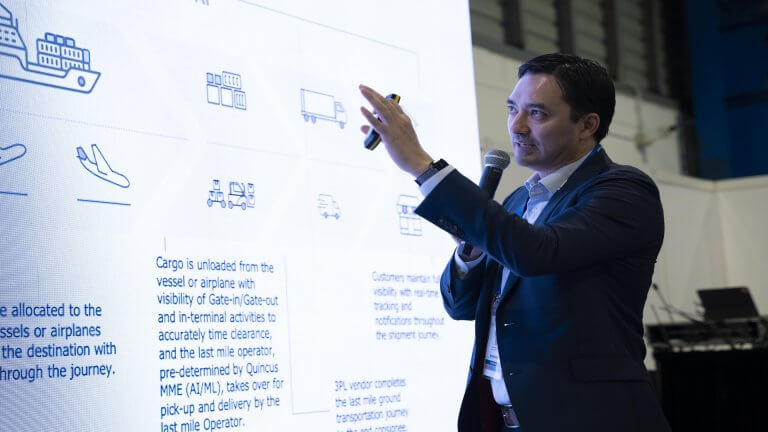
Thailand: Smoothing logistics in the land of smiles
Globally beloved as a welcoming nation, Thailand and its islands are on many a traveler’s bucket list. With nearly 70 million residents spread across its kingdom, one wonders what goes into easing the country’s logistical flow—and the hurdles providers must cross to get from door to door.
A land of tradition
Thailand enjoys a balanced transportation sector, evened out with domestic and international players. Currently, the market’s largest logistics provider handles more than a million packages a day. Ecommerce is also rapidly rocketing upward, a phenomenon requiring adequate infrastructural support. The logistics market in Thailand is optimistic and continues to grow.
Yet, a major problem is that technology is a novel concept for many Thai logistics providers. There is a lack of awareness in the industry when it comes to leveraging digital technologies to manage deliveries and processes. This means per-delivery costs, routing, and allocation are not optimized. This translates into lost cost-savings and efficiency.
Another problem is creating a homogeneous market with optimized operations. Consistency is all but non-existent in the market when it comes to standardizing logistics systems. Each provider is currently operating on its own system—and pouring intensive manual work into making it work. This makes for a chaotic, confused market in terms of end-to-end processing across the market.
Addressing is another issue. With multiple rural areas and a poor grasp of delivery information, GeoCoding is a serious struggle for Thai logistics providers.
A land set for change?
Quincus has a GeoEngine machine-learned to sharpen its accuracy with each new delivery. Despite the challenges of GeoCoding Thai addresses, Quincus has the machine-learning and optimization tools for address conversion and accurate coordinates. This makes addressing much smoother for logistics providers using the Quincus GeoEngine.
Ecommerce is a burgeoning sector that requires stable technology to underpin its operations. Thailand currently has lower operating revenue compared to its Southeast Asian neighbors, making affordability a challenge so far. A key upside to quickfire ecommerce growth is that increasing shipment volume compensates per-delivery cost with regards to system spend.
The biggest roadblock lies in improving technology use. Introducing the right platforms and transportation management systems to Thai logistics providers is an essential step to changing the market’s logistics game.
The world is shrinking as digital technology advances. With the right tools and knowledge to optimize them, the Thai logistics market can surge ahead of the curve in accuracy, efficiency, and cost-savings.
Have a question? Get in touch with Quincus now through sales@quincus.com.
Subscribe to keep up with our latest news









